
Nothing can save Windows 8 now
Tell me if you can't make the connection here. China is the world's largest market for PCs and during 2012 passed the United States to claim the top spot in smartphones, too. About two thirds of all handsets going into China are smartphones, and there is a long-documented trend in emerging markets where people skip the PC and go right to mobiles as their first connected devices. Handset sales are way up and now IDC says PC shipments are way down going into the People's Republic and will contribute to larger-than-expected decline in global personal computer shipments. You follow where this is going?
IDC says February PC shipments fell below forecasts. The analyst firm had expected a 7.7 percent year-over-year decline for first quarter but now predicts double-digit drop instead. China, which accounted for 21 percent of global PC shipments last year, is a major, but not the only, reason. The analyst firm identifies Chinese New Year, budgets cuts and anti-corruption campaigns as factors, while ignoring the most obvious: Shifting buying patterns.
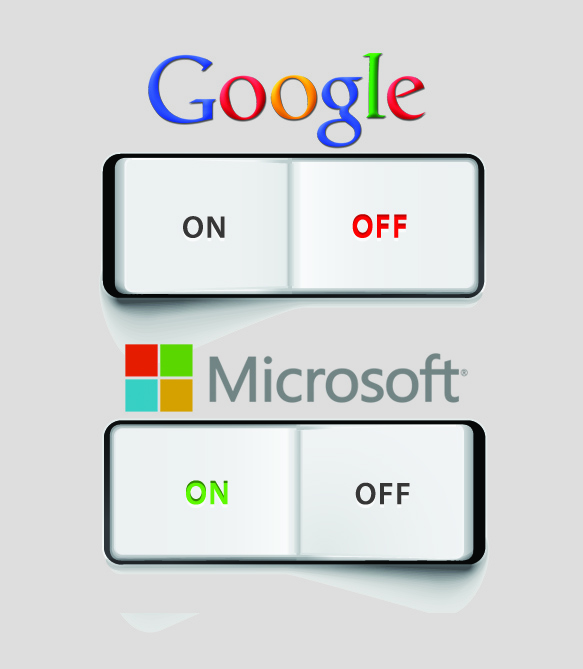
Sorry Google, I’m switching to Microsoft
A week ago, I had a dream. I was sitting on a beach with a glass of wine and a laptop and I was searching the internet using Bing. My wife came up, saw what I was doing, and said "Why aren’t you using Google?" To which I replied, "I’m boycotting it. The company shutdown Reader." Yes, that’s right, I dreamt Reader was being shuttered before Google even announced it, and now I’m using Bing. Spooky or what?
But let’s make one thing very clear here. Although I plan to switch to using Microsoft’s services for a while, it’s not a boycott. I realized, after the dream, that I’ve been so tied into Google that I’ve never really given Microsoft’s alternatives -- Bing, Outlook.com, Bing Maps, and even Internet Explorer -- a fair chance to see how they compare. I've used them, in passing at least, but I've never used them full time. And today that’s about to change.

Why Office 365 beats hosted Exchange for small business email
Nearly six months ago, I voiced in on the Google Apps vs Office 365 debate and let it be known that (at the time) I fully believed Google Apps was the better platform in many respects. Fast forward to February 27, and Microsoft unveiled why waiting until the second (or third) try on a given product is usually a good bet. In all honesty, I think Microsoft has been on the right track with Office 365 for four to five months now, introducing quality features and fixing stability issues that plagued its reputation in the past.
I'll go so far as to say that the Office 365 ecosystem has been nothing short of respectable lately. My technology consulting company FireLogic steadily has recommended the suite as reliable alternative to Google Apps for some months now, and the results are extremely positive. Heavy Microsoft shops moving away from their legacy on-premise Exchange servers are itching for a new home, and the company seems to have a cloud of its own that is living up to even my stringent expectations.
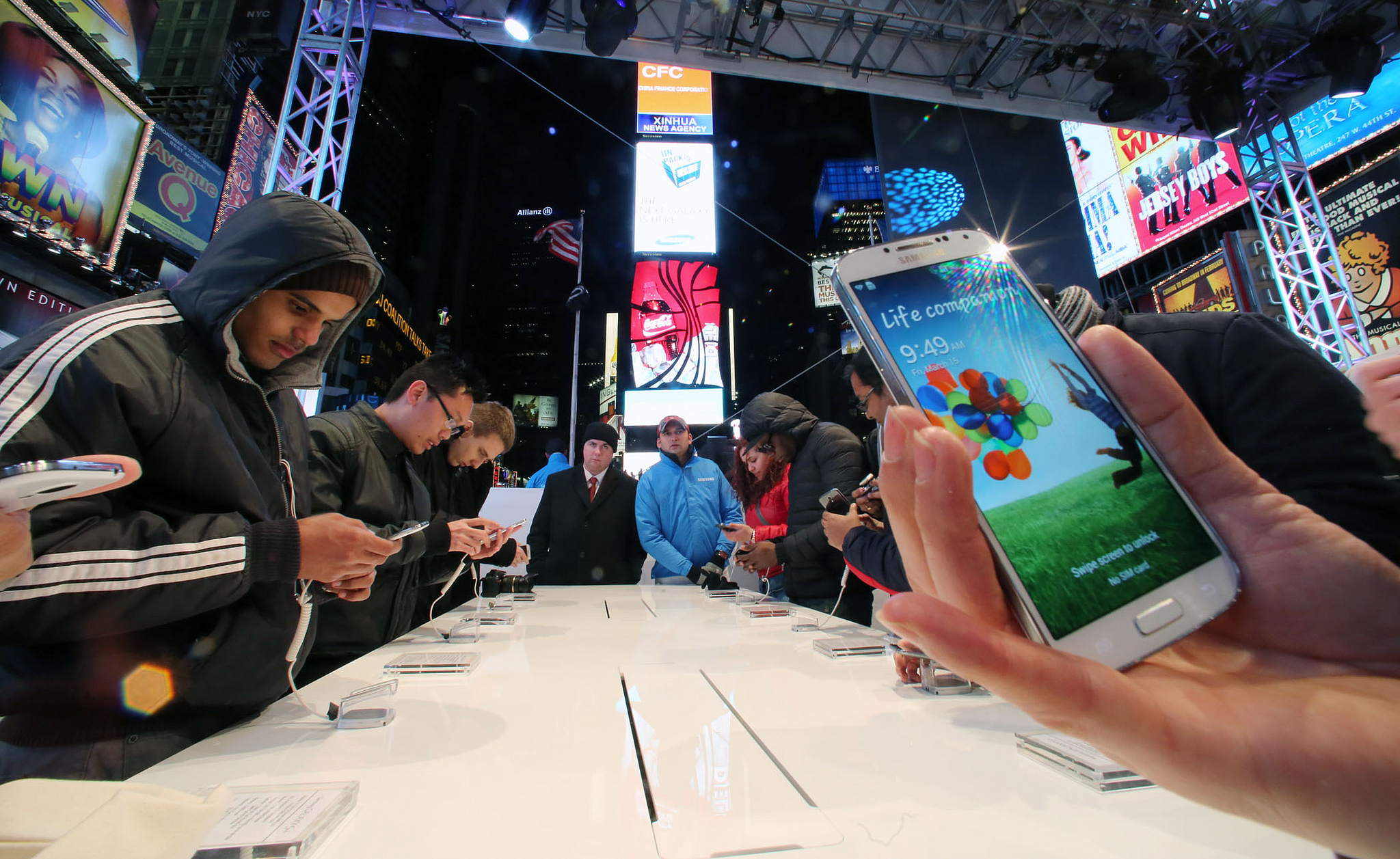
Why I'm not impressed by the new Samsung Galaxy S4
When I was expecting an exotic dish that would blow my mind just by looking at it, Samsung yesterday served up a plain, simple and frankly overdone spaghetti Bolognese. The new Galaxy S4 might just be the best Android smartphone that Samsung has ever made, but it's not as "awesome" or "innovative" nor filled with "innovation" as the company would lead us to believe. It's a wife with some nip and tuck instead of a hot supermodel.
Instead of being smitten by the Galaxy S4 I was left with a bitter taste in my mouth: Haven't I seen some of those features already in older smartphones? Admittedly, there are some impressive ones out there -- like Dual Camera and Dual Video Call -- but generally speaking Samsung appears to have focused more on delivering a huge number of features rather than focusing on fewer truly innovative ones.
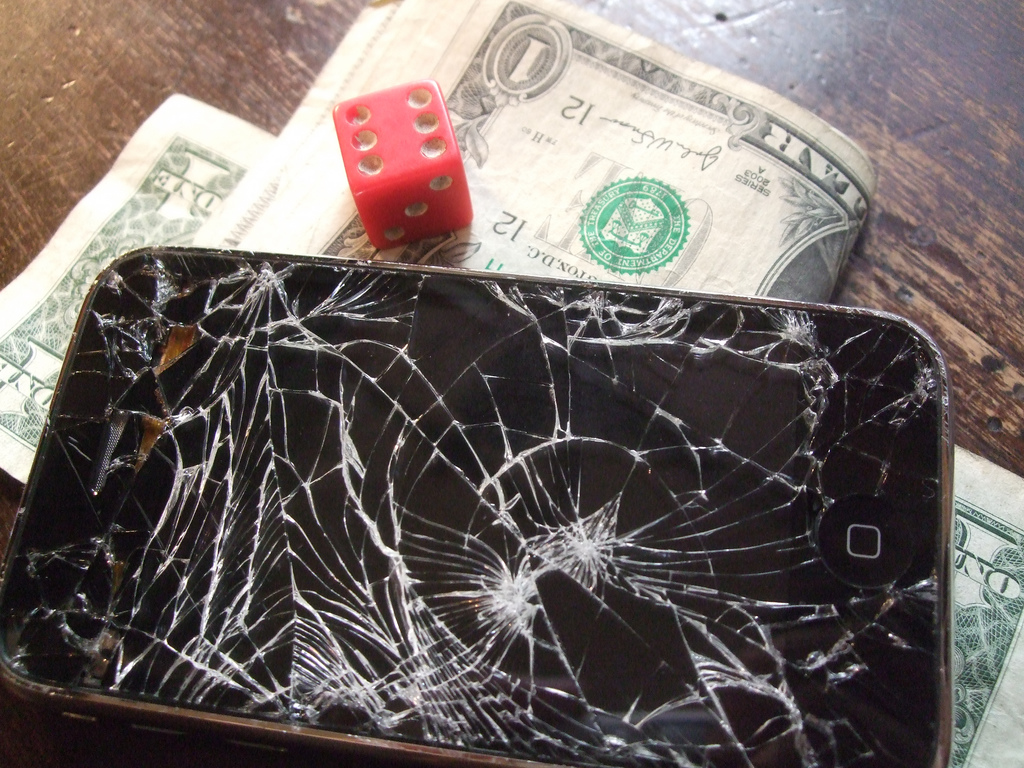
How pathetic Apple has become
Phil Schiller's preemptive attack against Samsung's Galaxy S IV, which launches later today, says everything you need to hear about the sorry state of Apple. I'm stunned, because the marketing chief sounds too much like Microsoft CEO Steve Ballmer in 2007, when he dismissed iPhone. Denial is the surest sign a company has lost its way, and I don't just mean some executive denying such-and-such product or competitor is any good as distracting marketing ploy. The worst, and Schiller gives it, is corporate denial -- the proverbial ostrich with head in the sand -- about the world around.
Last night, I saw Schiller quoted in the Wall Street Journal. This morning I see posts from Bloomberg and Reuters, too, and a raff of tech blogs and news stories -- largely quoting one of the more mainstream services. The Journal calls Schiller's Android attack a "rare interview". But I see something else: Desperation. Denial. What's missing means much more: The typical leaks and rumors about Apple's next thing that steals the thunder from a competitor. Apple has nothing to show, and the InterWebs are less embracing of rumors. How pathetic is that?

Think your broadband is too expensive? It costs $1,753 a month in Cuba
Uptime monitoring firm Pingdom analyzed the latest report from the International Telecommunication Union (ITU) to discover how much the world is paying for its broadband, and its findings show some incredible variations in global broadband costs.
While broadband in most of the world’s countries is generally available for between $5 and $60 per month, in Cuba it’s an eye watering $1,753 (the country additionally has no mobile-broadband services available). In Swaziland, the next most expensive country in the list, it’s a lot cheaper, but still comes in at a very hefty $875 per month.

Android and iOS are neck-and-neck in two-horse tablet platform race
In December, I warned: "You can't trust IDC's 2016 tablet forecast, or any other". That's because the analysts revise predictions every couple months. Well, lookyloo. The firm dropped a new forecast late yesterday, and like every other Android gives iOS another beating. I say, "Perhaps".
The great soothsayers now see Android tablet shipment share rising above iOS for all 2013, a feat already claimed individually for third and fourth quarters. IDC sees the green robot at 48.8 percent share to 46 percent for the fruit-logo. Don't believe it. The market is too volatile and IDC, along with all its competitors, has yet to make accurate predictions. Anything can happen, including an unexpected surge of Windows tablets.

I'm shocked! Shocked! More teens have cell phones and use the Internet
As the parent of two teenagers I am always interested in studies about their digital lifestyle. Pew Research Center has a new report that claims that "smartphone adoption among American teens has increased substantially and mobile access to the internet is pervasive". You don't say? I believe I could have told you that simply by visiting my local mall. So much for the "tell us something we don't know" moment.
Still, the research firm did its homework and published some interesting numbers. Pew studied a group of 802 teens between the ages of 12 and 17 to reach its results. For instance, 78 percent of all teens have cell phones and almost half of those, 47 percent, are smartphones. For the record, in our household it is an even 50 percent -- the 16 year old has a smartphone, the 13 year old does not yet have his first phone, though it is a subject that seems to come up daily.
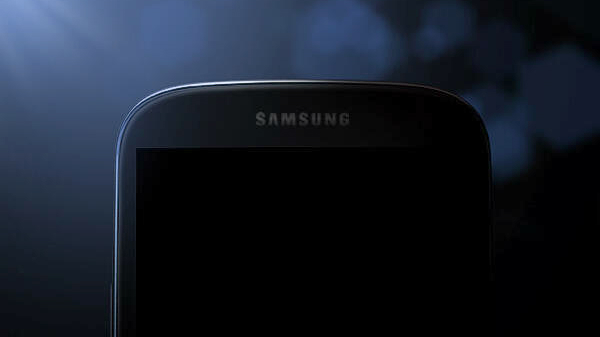
Samsung is the new Apple
One measure of any brand's success is how much people talk about it. By that reckoning, Apple's star is fallen, while Samsung's rises. Consider the amount of rumors the past month or so about Galaxy S IV, which launches this week, and contrast that against near silence about anything Apple. Turn back the clock a year and you'll see modest buzz about the S3 but ongoing Apple rumors that stole the thunder from the Consumer Electronics Show, Mobile World Congress and just about every single new mobile product launch. (Yet this year, Apple efforts to overshadow CES failed.)
Then there was the noise, noise, noise from Apple's patent lawsuit against Samsung, which hundreds of bloggers and journalists used to repeatedly label the South Korean company the world's worst worrisome copycat. In the end Samsung's image is no worse for wear, while Apple rumors wear thin. The most prominent recent one is about a watch. For the wrist? What Citigroup analyst Oliver Chen calls a $6 billion business for Apple. Let me make that clear, because shorthand lacks the impact: $6,000,000,000! That's more than iPod generated in fiscal 2012 ($5.6 billion). Yeah, right.
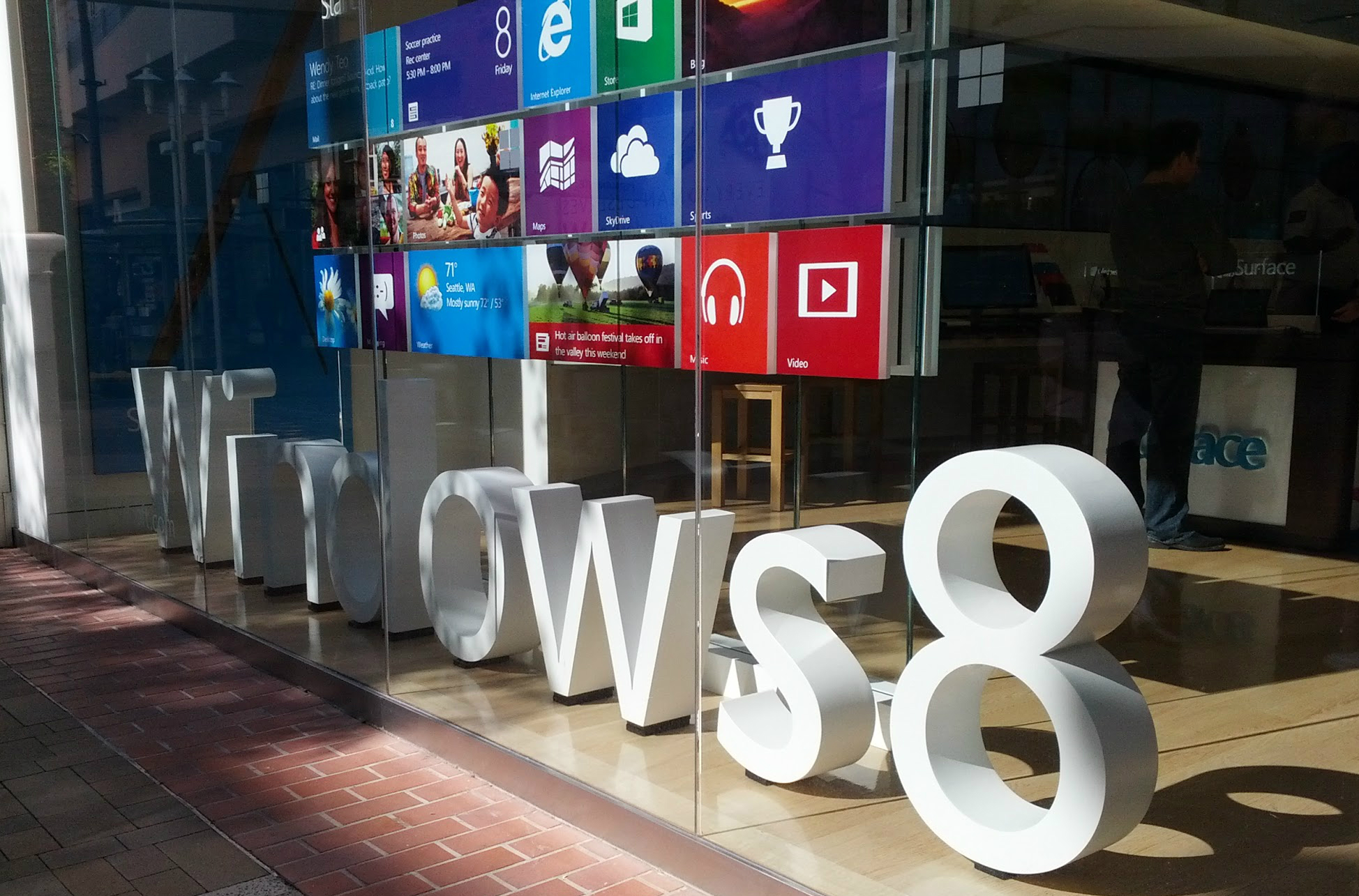
Thank you, Apple -- iPad made me fall in love with Windows 8
Every once in a while I find myself having to reinstall the operating system from scratch on my laptop. Unlike previous occasions when I would contemplate choosing between Windows 7 and Windows 8 as the default OS, this time around something rather strange has happened. Instead of having to deal with conflicting thoughts, and even remorse, I installed Windows 8 and never looked back. I now wear my "Windows 8 user" tag proudly and not with regret.
If you asked me whether I really want Windows 8 not much longer than two months ago I would have said that "I love and miss Windows 7" -- and for good reasons at the time. My complaints mostly focused around the Modern UI, which was designed with tablet use in mind and not for users like me (and likely you as well) that are accustomed to Microsoft's operating systems on more traditional devices like full-fledged PCs and laptops. So what changed?
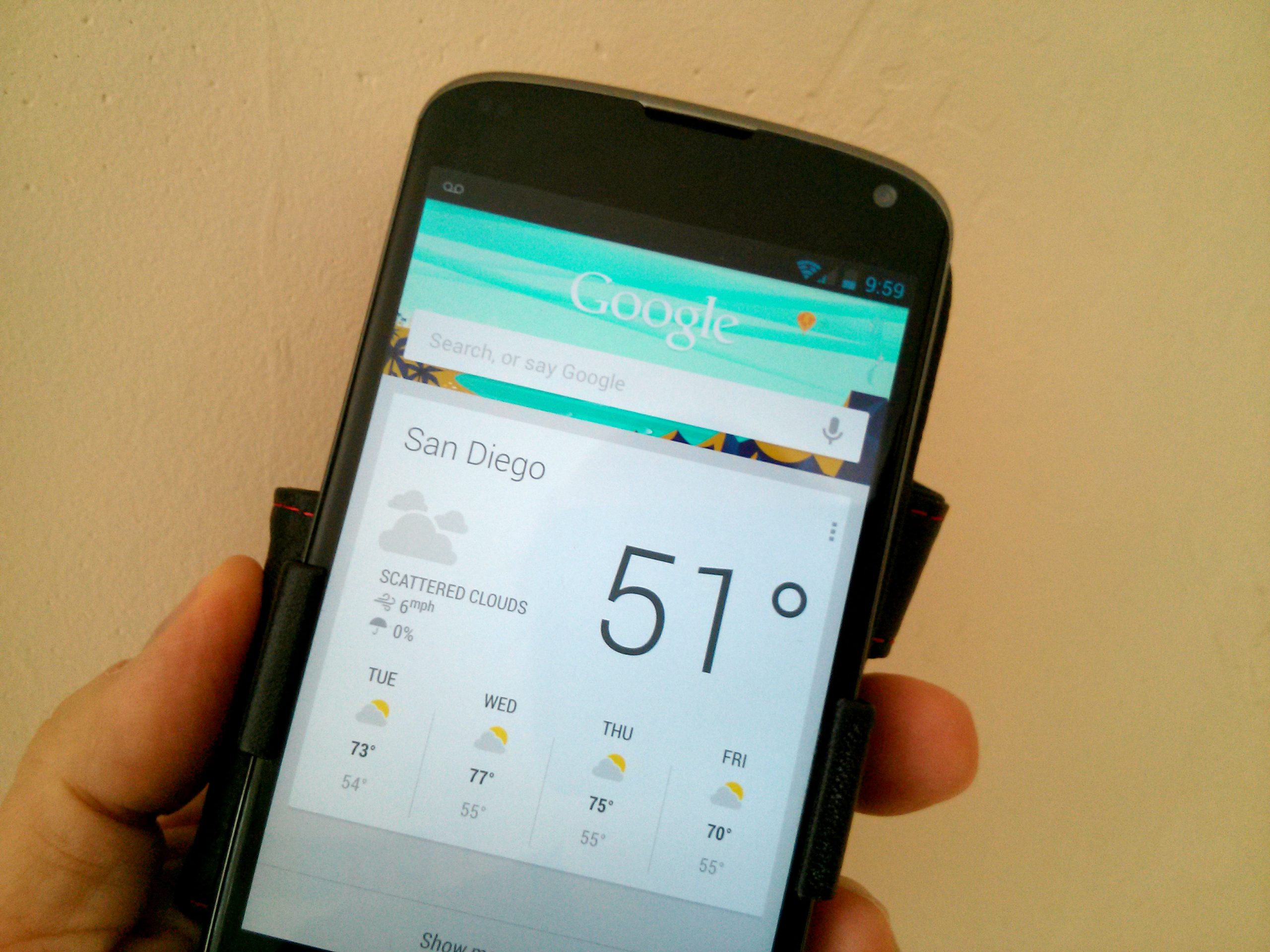
Google Now for Chrome changes EVERYTHING
François Beaufort, the developer who recently made headlines by outing Chromebook Pixel, is stirring up things again. He uncovered code that all but assures Google Now will soon come to Chrome and Chrome OS. I can't overstate how enormously game-changing the service will be. Google Now is the purest evolution of sync and the killer app for the contextual cloud computing era.
We are on the cusp of Star Trek computing, where information is available at the command of your voice and the machine is a personal assistant that anticipates you. Google Now delivers a hint of this future on Android devices. Bringing it to PCs puts the search and information giant ahead of everyone because, with the exception of a possible future Microsoft-Facebook partnership, no other company has the resources to provide so much personalized information to so many people in so many places in so many ways.

Third-party alternatives to official Google apps for Windows Phone 8
If you're the sort of person deeply rooted in Google services, at first glance migrating to Windows Phone 8 from either Android or iOS can be a total drag. The information giant has released a single app so far, which can be used to search the web, but nothing else. Luckily, there are plenty of third-party alternatives to choose from that offer decent and sometimes superior experience for Google users.
But finding the right replacements can be tricky, as the Windows Phone store features more than 130,000 apps and a simple search query returns many results of variable quality -- some great, some not so great. To make your job easier, I've prepared a list of Windows Phone 8 alternatives to traditional Google apps, ranging from Google+ to Google Maps, Google Reader and even YouTube.
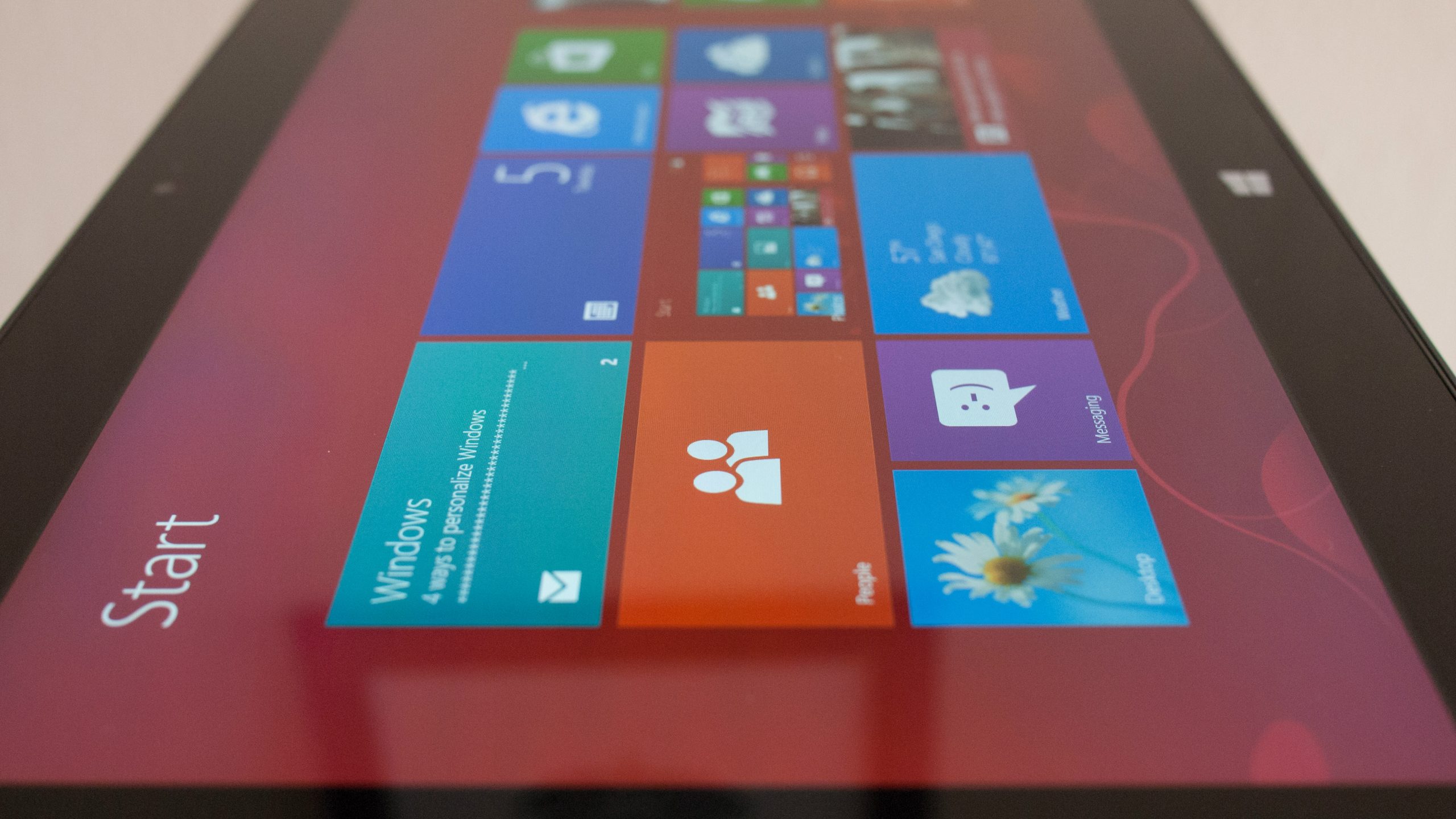
You don't hate Windows 8
I nearly hurled coffee onto Nexus 10 this morning -- seriously had to choke back -- when seeing this ridiculous ZDNet headline: "Will 90 percent of users always hate Windows 8?" I immediately thought that someone must have done a shocking and provocative survey. But, no-o-o-o-o, writer Matt Baxter-Reynolds pulls the figure from his bee hind. He surmises this sensational figure based on absolutely nothing.
Coincidentally, I conducted two polls over the weekend designed to gauge Windows 8 sentiments -- what you really think about Microsoft's flagship operating system. I asked: "If Microsoft sold Window Vista, 7, and 8 side by side and you could buy the one you wanted most, which would you choose?" and "Is Windows 8 a failure?" We have a split decision on the latter, from good sample sizes -- more than 1,500 for the longer question and exceeding 1,300 for the other.

What's wrong with tech in US K-12 education today
If you surveyed the different directions K-12 school districts take in the United States, you'd find nothing less than a hodgepodge of technologies. The mess that was known as "Novell Hell" universally bows down to a diverse array of technologies including Active Directory, campus-wide Wi-Fi, iPads, Chromebooks, and a little bit of everything else in between. While it's reassuring that most districts I'm in discussions with are moving to cloud-based Google Apps or Office 365 for their email, the end-user device side of things is murkier.
I'm not going to call myself an expert in K-12 technology and policy, but seeing that I spent the last four years supporting and training users' technology needs at my former high school district, I've got good experience understanding the issues affecting teachers and students alike. After attending educational tech conferences year after year, the common consensus stands: everyone in education knows where they want to be, but the paths some of them take to get there are muddled with too much idealism and not enough realism.
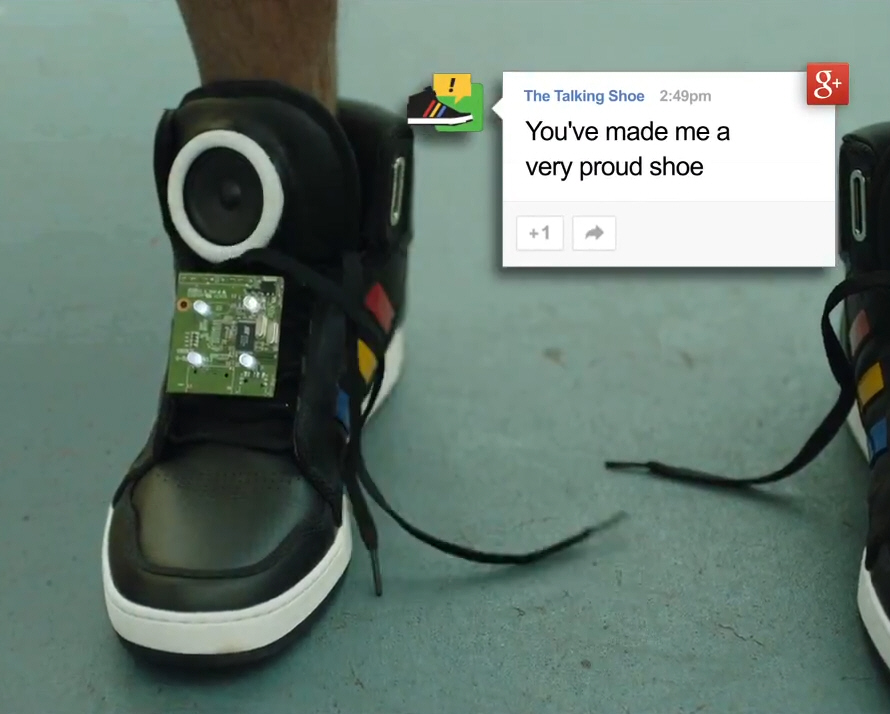
Is there anything more annoying than a pair of talking shoes? Probably not
Art, Copy & Code has partnered with artist Zach Lieberman, Google, and interactive collective YesYesNo to create what it calls a smart talking sneaker with personality.
The Talking Shoe, which Google has been showing at the South by Southwest (SXSW) tech conference in Austin, Texas, includes an accelerometer, gyroscope, Bluetooth and other everyday technologies, that combine to “translate the wearer’s movements into funny, motivating and timely commentary”. In the video that shows off the sneakers, example phrases include “This is super boring” (when you’re just sitting around), “I love the feeling of wind in my laces”, “Are you a statue? Let’s do this already” and “Call 911 because you’re on fire”.
